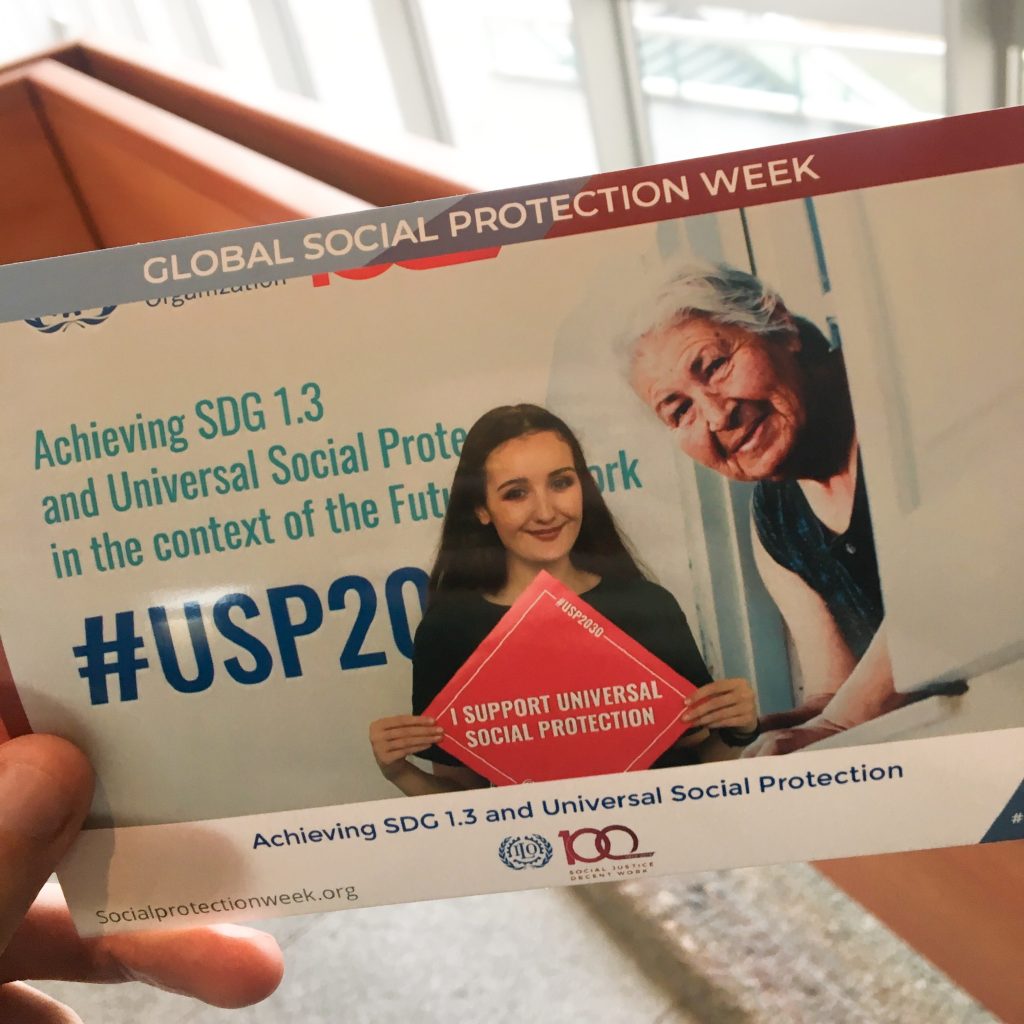2
Jan
Global Social Protection Week Blog Post
2 January, 2020
SWITZERLAND, NOVEMBER, 2019. The ILO “Global Social Protection Week” facilitated dialogue between governments, workers, employers, intergovernmental organisations (IGOs), financial institutions, and civil society organisations, on how we can achieve Universal Social Protection by 2030 (USP2030). USP2030 complements health promotion activities by the World Health Organization (WHO), by advocating for good wellbeing and prosperity through a range of interventions — including universal health coverage, child and family benefits, disability benefits, sickness benefits, unemployment benefits, paid maternity leave, injury compensation and old-age pensions.
The 4-day conference invited over 600 attendees to share their ideas on making USP2030 a reality, and included panel discussions from notable figures including Guy Ryder, Director-General of the International Labour Organization (ILO); Peter Salama, Executive Director of the Division of Universal Health Coverage (WHO); Lisa Kurbiel, Head of the Joint SDG Fund (UN); Catalina Devandas Aguilar, UN Special Rapporteur on the Rights of Persons with Disabilities; Sharan Burrow, General Secretary of the International Trade Union Confederation; as well as a multitude of government representatives from over 25 countries.
Solidarity, collective action and fair taxation were identified as cornerstones for sustainable social protection, with speakers calling upon global leaders to reject individualism, and instead work towards a common good. The efforts made by South Africa reflected this sentiment, with Minister Boitumelo Moloi highlighting the use of child grants, skills training, disability benefits and government work programmes in facilitating the creation of equal rights and opportunities. Similarly, the work of trade unionists from India, Mexico, Nepal, the Dominican Republic and Kenya demonstrated the successes of collective action in improving wages, worker representation, occupational health and safety, and access to social insurance.
However, despite these achievements, it was acknowledged that USP2030 might be unachievable if efforts continue at the current pace. The “missing middle” are of particular concern, with over two billion people still working within the informal economy. Whilst these jobs are drivers of productivity in low- and middle-income countries (LMICs), informal employment status excludes many workers and their families from receiving benefits from social insurance. Therefore, health-promoting entitlements such as sick pay, injury compensation, life insurance and old-age pensions, remain a distant reality for over 55% of the global population. Crucially, this policy gap is of great significance for SPARKS’ work, as this “missing middle” undoubtedly face higher rates of morbidity and mortality.
Looking to the future, speakers felt optimistic in closing this gap, believing that the formalisation of work will enhance the scope and efficacy of taxed-based social protection systems. Nevertheless, we must be careful in assuming that formalisation will follow a linear trajectory and recognise the multitude of factors which complicate its course. Accordingly, the SPARKS Network, along with IGOs, governments, civil society organisations and other research institutions must continue to assess social protection systems, to pursue progress together, as a global community.
Jennifer Thorpe
Karolinska Institutet
SPARKS – Health and Social Protection Action Research & Knowledge Sharing Network
